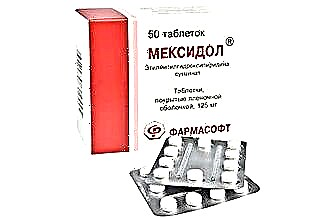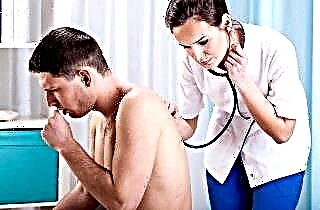To cure a sore throat is not as easy as it seems at first glance. This is an inflammatory disease of an infectious nature, and if not all pathogenic microorganisms have died after treatment, then the disease will return again and again, turning into a chronic form. Therefore, the doctor should decide how to treat angina in adults, depending on the situation. When prescribing a course of therapy, he takes into account many factors, but first of all finds out the cause of the disease.
Causes and mechanism of development
 An understanding of why the disease arises and how the disease develops will help to choose an effective remedy for sore throat. Tonsillitis is an inflammation of the tonsils, most often provoked by streptococci, which can enter the body in a variety of ways: through food, drink, unwashed food, dirty hands and even airborne droplets. But few people know that angina is very contagious!
An understanding of why the disease arises and how the disease develops will help to choose an effective remedy for sore throat. Tonsillitis is an inflammation of the tonsils, most often provoked by streptococci, which can enter the body in a variety of ways: through food, drink, unwashed food, dirty hands and even airborne droplets. But few people know that angina is very contagious!
But an inflammatory process can develop for non-infectious reasons:
- against the background of a sharp decrease in immunity due to stress, hypothermia, severe overwork;
- as a complication in acute and chronic rhinitis and sinusitis;
- due to frequent and severe allergic reactions;
- after regular or very strong overexertion of the vocal cords;
- due to systemic blood diseases;
- against the background of serious infectious diseases: diphtheria, scarlet fever, etc.;
- as a complication against the background of AIDS, syphilis, oncology.
Usually, the disease begins with an acute form, which is easily recognized by its characteristic symptoms. This is very good, as it allows you to diagnose the disease in a timely manner and take effective measures in time to cure a sore throat at an early stage.
In the absence of treatment or severe infection, a purulent form develops. It is the most dangerous, since the constant presence of pus in the oral cavity can provoke various complications and poison the entire body. Untreated angina easily turns into a chronic form, against the background of which complications also gradually develop.
The main symptoms
The most pronounced symptoms of acute tonsillitis. And the first of these is severe sore throat. A sore throat can hurt to such an extent that a person cannot even eat normally, drink water, or sleep. Moreover, acute pain is usually not accompanied by other respiratory symptoms - there is no runny nose, cough, etc.
 Other malfunctions in the body indicate the development of tonsillitis:
Other malfunctions in the body indicate the development of tonsillitis:
- a sudden and very strong increase in body temperature, often above 39OWITH;
- redness of the tonsils, uvula and laryngeal vault;
- a significant increase in the size of the tonsils;
- a white, yellowish, or purulent coating on the tonsils;
- multiple boils on the tonsils;
- severe symptoms of general intoxication: nausea, vomiting, etc.;
- swollen lymph nodes and tenderness on palpation;
- joint and sometimes heart pain.
With such symptoms, you should immediately consult a doctor. It is impossible to cure a sore throat without knowing the cause and nature of the disease. And an incorrectly selected medicine can blur the clinical picture and even accelerate the course of the disease.
Even if you are sure that the best remedy for sore throat is exclusively natural drugs and folk recipes, you still need to undergo a diagnosis.
Purulent infectious sore throat cannot be treated with folk methods! They can only alleviate the symptoms for a while, but the remaining infection will affect neighboring organs and tissues and spread further throughout the body.
Traditional treatment
Acute infectious sore throat can be quickly cured only with the use of antiviral, antifungal or antibacterial drugs - drugs that have a detrimental effect directly on the pathogenic microorganisms that provoked the disease.
 To identify them, a bacterial culture of mucus from the throat is done. It allows you to check the sensitivity of microbes to various drugs and choose the best remedy for treatment. It is impossible to do this at home, which is why timely access to a doctor is so important.
To identify them, a bacterial culture of mucus from the throat is done. It allows you to check the sensitivity of microbes to various drugs and choose the best remedy for treatment. It is impossible to do this at home, which is why timely access to a doctor is so important.
If you feel unwell and the disease progresses rapidly, the doctor may prescribe a broad-spectrum antibiotic even before the examination results are received, especially if signs of purulent sore throat appear. This is done in order to avoid the appearance of complications and to stop the inflammatory process at least a little. Then the treatment is adjusted: the dosage is changed or another drug is prescribed.
In addition, depending on the characteristics of the course of the disease, the following can be prescribed:
- antipyretics - to lower body temperature to 38OC (then they are canceled): "Aspirin", "Paracetamol", etc .;
- anti-inflammatory drugs - to relieve pain and reduce the inflammatory process: "Ibuprofen", "Nurofen", etc.;
- antihistamines - to relieve swelling of the mucous membranes and as a prophylaxis for an allergic reaction to antibiotics: Claritin, Tavegil, Diazolin, etc .;
- antiherpes - in the event that, according to the results of analyzes, the causative agent of the disease turned out to be the herpes virus: "Acycolvir", "Gerpevir", "Zovirax", etc .;
- antiviral - if angina develops against the background of ARVI: "Interferon", "Anaferon", etc.
Antibacterial agents for sore throats in adults should only be selected by a doctor. The most commonly used drugs are the penicillin series or cephalosporins. But it is dangerous to buy such drugs on your own. When recommending them, your doctor takes into account many factors, including the presence of contraindications and possible side effects that you may not be aware of.
Antibiotics also differ in the form of release. Injections are prescribed when the fastest possible effect is needed, or the patient simply cannot swallow the pill due to severe sore throat.
In the presence of contraindications (including during pregnancy) or to speed up the healing process, local antibiotics are used: to rinse or irrigate the throat.
Folk remedies
 Many people ask how you can cure a sore throat at home, without the use of antibiotics. Infectious or herpes sore throat - nothing! Only strong medicines! At an early stage, you can still fight the viral and non-infectious with folk remedies, but it is important to control your condition. If it starts to deteriorate or signs of purulent sore throat appear - see a doctor immediately!
Many people ask how you can cure a sore throat at home, without the use of antibiotics. Infectious or herpes sore throat - nothing! Only strong medicines! At an early stage, you can still fight the viral and non-infectious with folk remedies, but it is important to control your condition. If it starts to deteriorate or signs of purulent sore throat appear - see a doctor immediately!
A very common mistake is to try to scrape off plaque or squeeze out purulent boils on the tonsils yourself. This should not be done under any circumstances. This only contributes to the spread of infection in the oral cavity, and if the tonsils are damaged, then pathogenic microorganisms will enter the bloodstream and then complications cannot be avoided.
However, in agreement with the attending physician, some folk remedies can be used as auxiliary methods of treatment:
- Rinsing. Gargle with sore throat often, up to 6-7 times a day. The use of a solution of sea salt or herbal decoctions with an anti-inflammatory effect for this will relieve a sore throat, help to quickly restore damaged mucous membranes and soothe their irritation. Decoctions of chamomile, calendula, celandine, oak bark, eucalyptus are suitable.
- Warm drink. It is especially important for angina, as the fluid washes away the infected plaque from the tonsils, cleansing them and accelerating the healing process.Toxins are also removed from the body in a dissolved state, and correctly selected herbal teas help to neutralize them. The best means for cleansing the body is a ready-made herbal collection, in which all components are reasonably selected. You can buy it now at any pharmacy and take it according to the instructions.
- Inhalation. Can only be used with the permission of a doctor. With purulent sore throat and in some other cases, they are contraindicated. Steam inhalation is a good treatment for the throat in the early and final stages of the disease. They moisturize mucous membranes, improve blood circulation, quickly relieve inflammation and sore throat. For inhalation, a soda solution, a decoction of eucalyptus or pine buds is suitable. You can use ready-made pharmaceutical preparations.
 Aromatherapy. An excellent option for throat treatment when steam inhalation is prohibited. Volatile essential oils of eucalyptus, tea tree, juniper, thuja, fir, cedar, evaporating from the surface of water poured into an aroma lamp, are able to penetrate the structure of mucous membranes and have a healing effect, while purifying and disinfecting the air in the room. It is a good prevention of infection with sore throat of other family members.
Aromatherapy. An excellent option for throat treatment when steam inhalation is prohibited. Volatile essential oils of eucalyptus, tea tree, juniper, thuja, fir, cedar, evaporating from the surface of water poured into an aroma lamp, are able to penetrate the structure of mucous membranes and have a healing effect, while purifying and disinfecting the air in the room. It is a good prevention of infection with sore throat of other family members.- Compresses. Warming up also gives an excellent therapeutic effect, but apply such procedures for purulent sore throat and body temperature above 37.2OC is not allowed. Therefore, before putting a compress on your throat, be sure to consult your doctor. Good results are obtained with a regular vodka compress at night. You can add a little ground red pepper or cinnamon to vodka. You can rub the front of the neck with Vaseline and camphor oil and wrap it in a woolen scarf.
Drinking milk during a sore throat is not recommended. Lemon tea is healthy, but it can be very irritating and make your sore throat worse. The use of honey and burnt sugar in reasonable amounts relieves irritation and has a good anti-inflammatory effect.
It is necessary to select folk remedies for the treatment of angina wisely. And if in doubt, it is better to refuse this method of treatment or coordinate your actions with your doctor.
Surgery
More recently, operations to remove tonsils were prescribed for almost every second patient with chronic tonsillitis. Modern doctors are trying to preserve the tonsils, since they perform a number of vital functions, and their absence greatly weakens the body's resistance to respiratory diseases.
But there are situations when there is simply no other way out, and in order to avoid the development of serious complications, the tonsils have to be sacrificed. The operation is shown if:
 long-term conservative treatment does not give tangible results;
long-term conservative treatment does not give tangible results;- breathing and swallowing are very difficult due to constantly enlarged tonsils;
- the purulent-inflammatory process spreads further, affecting new organs and tissues;
- complications began to develop: sluggish inflammatory diseases of internal organs (kidneys, heart, joints).
Excision of the tonsils is performed under local anesthesia and takes only a few minutes. This can be done using special scissors, an ultrasonic or laser scalpel. In some clinics, tonsil tissue is simply vaporized with a laser.
The postoperative period is only 48 hours, and complete recovery occurs in about two weeks.
Contraindications to the operation are: pregnancy, active inflammatory processes in the body, clotting disorders and systemic blood diseases, too weakened immunity. Within a few days after the procedure, a noticeable improvement in the general condition of the patient is observed.
Prevention of complications
An independent wrong decision on the choice of means, than to treat angina in an adult, can lead to the rapid development of serious complications, some of which pose a serious threat to the patient's life.
The insidiousness of the disease is that it may seem that there has been a significant improvement, but this is just the beginning of an attack on other organs:
- paratonsillar abscess is an abscess that can form in the soft tissues of the palate or under the tongue and can only be removed surgically;
- lymphadenitis (acute or purulent) - severe inflammation of the lymph nodes, which gives rise to fever and a sharp decrease in immunity;
 infectious polyarthritis - multiple joint damage that can lead to partial or complete loss of limb mobility;
infectious polyarthritis - multiple joint damage that can lead to partial or complete loss of limb mobility;- rheumatism, myocarditis - and other heart diseases develop when an infection enters the cardiovascular system;
- meningitis - inflammation of the meninges develops in the presence of multiple purulent abscesses and tonsillitis, complicated by sinusitis;
- pyelonephritis - a serious inflammation of the kidneys of an infectious nature, which can lead to their complete failure;
- sepsis - general blood poisoning, if untreated, leads to the rapid death of the patient.
And these are only the most serious of the complications that a seemingly harmless disease can provoke. Therefore, do not self-medicate sore throats. Get tested and ask your doctor how to treat your throat in your case. We are not against traditional medicine, but only if its use is justified and brings benefit to the patient, not harm!

 Aromatherapy. An excellent option for throat treatment when steam inhalation is prohibited. Volatile essential oils of eucalyptus, tea tree, juniper, thuja, fir, cedar, evaporating from the surface of water poured into an aroma lamp, are able to penetrate the structure of mucous membranes and have a healing effect, while purifying and disinfecting the air in the room. It is a good prevention of infection with sore throat of other family members.
Aromatherapy. An excellent option for throat treatment when steam inhalation is prohibited. Volatile essential oils of eucalyptus, tea tree, juniper, thuja, fir, cedar, evaporating from the surface of water poured into an aroma lamp, are able to penetrate the structure of mucous membranes and have a healing effect, while purifying and disinfecting the air in the room. It is a good prevention of infection with sore throat of other family members. long-term conservative treatment does not give tangible results;
long-term conservative treatment does not give tangible results; infectious polyarthritis - multiple joint damage that can lead to partial or complete loss of limb mobility;
infectious polyarthritis - multiple joint damage that can lead to partial or complete loss of limb mobility;

